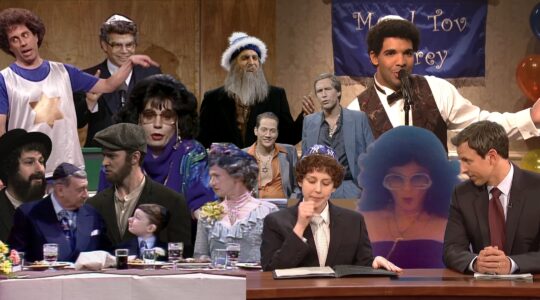The song “Strange Fruit,” one of the most haunting jazz ballads of the past century, was made famous by Billie Holiday. But it was written by a Jewish man named Abel Meeropol, who was inspired to write the story after seeing a photograph of two young black men being lynched.
The lynching occurred 80 years ago, on August 6, 1930. Three young black men were accused of shooting of a white man. A mob came to the town jail, demanding to be let in. The sheriff refused, and people took sledgehammers to the jail doors. They carried away two of the young men, beat them, and hung them from a nearby tree.
Meeropol, a schoolteacher in New York, published the lyrics in a Communist magazine. He later set them to music. Meeropol subsequently wrote lyrics for Frank Sinatra and Peggy Lee, and composed the libretto for an opera. He used the pen name “Lewis Allan,” taking the names of his two stillborn sons. Later, he and his wife adopted the sons of alleged spies Julius and Ethel Rosenberg.
Meeropol continued to fight for civil rights, protesting when a line about “my neighbors white and black” was removed from a performance of his song “The House I Live In.” But he will always be best remembered for “Strange Fruit,” a chilling protest against racism and violence.
JTA has documented Jewish history in real-time for over a century. Keep our journalism strong by joining us in supporting independent, award-winning reporting.





